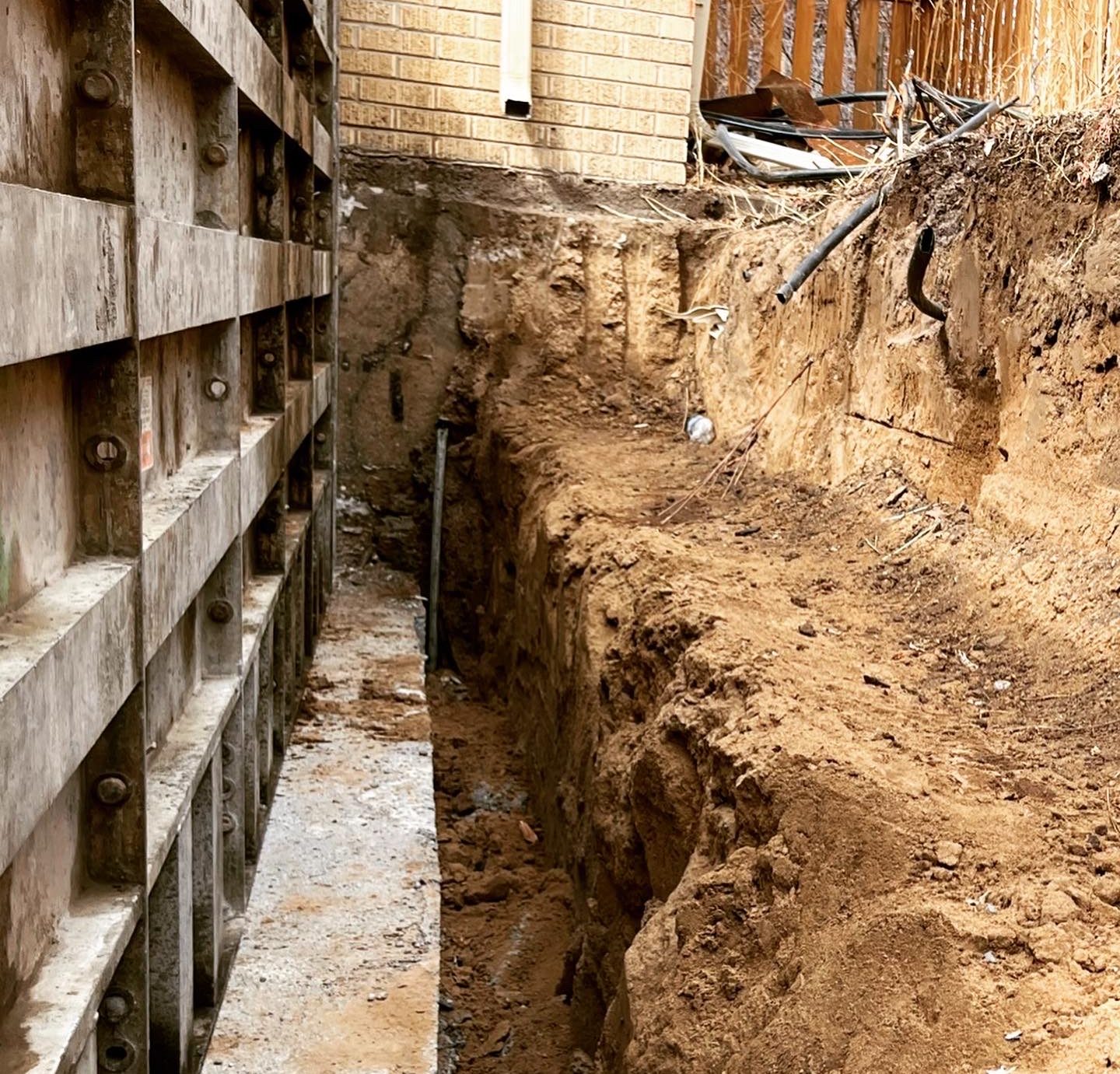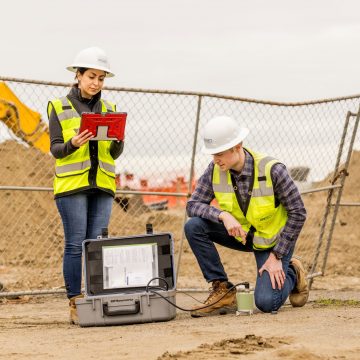Vital High Qualities of Effective Civil Consulting Engineers
Vital High Qualities of Effective Civil Consulting Engineers
Blog Article
Recognizing the Comprehensive Role of Geotechnical Designers in Ground Investigation and Dirt Evaluation for Building And Construction Jobs
Geotechnical designers are essential to the success of building projects, supplying necessary insights with comprehensive ground investigations and dirt evaluation. Their proficiency in assessing soil actions and utilizing advanced screening techniques educates crucial decisions that support structural stability and security.
Function of Geotechnical Designers
The crucial role of geotechnical designers in construction projects can not be overstated, as they supply essential understandings right into dirt habits and website problems. These professionals are tasked with examining the suitability of the ground for numerous sorts of structures, ensuring safety and security throughout the building process. Their expertise encompasses a vast variety of tasks, including website characterization, dirt tasting, and laboratory testing, which are essential for establishing the physical and mechanical residential or commercial properties of the soil.
Geotechnical engineers utilize their searchings for to develop fundamental layouts that suit load-bearing demands and mitigate dangers associated to dirt incline, negotiation, and liquefaction security. They play a vital role in recognizing prospective threats, such as groundwater changes and contamination, which can significantly impact task feasibility. Furthermore, they work together with engineers, civil engineers, and contractors to guarantee that geotechnical factors to consider are integrated into the total design and building and construction stages.
Ground Investigation Strategies
Ground examination techniques create the backbone of geotechnical engineering, enabling engineers to get a comprehensive understanding of subsurface conditions. These methods are necessary for examining dirt residential properties, determining groundwater degrees, and identifying potential geological risks.
Common methods consist of borehole boring, which allows for the extraction of dirt samples at different midsts, supplying important data for evaluation. In addition, sitting testing strategies, such as Conventional Penetration Tests (SPT) and Cone Infiltration Examinations (CPT), are used to evaluate dirt stamina and density straight in the ground.
Geophysical techniques also play a significant duty in ground examinations. Methods such as seismic surveys and electrical resistivity tomography help assess subsurface features without extensive excavation. geotech engineer. These non-invasive approaches are especially useful in delicate or huge areas where interruption should be minimized
Moreover, exploratory trenches can be dug deep into to visually examine soil layers and identify any anomalies. Each of these strategies adds special understandings, permitting geotechnical designers to create exact site evaluations and notify style choices. In recap, a combination of these ground examination strategies is crucial for effective building and construction jobs, making sure safety and security and architectural honesty.
Soil Analysis Methods
Dirt analysis methods are important for recognizing the chemical and physical homes of dirt, which straight influence the design and building and construction of structures and various other structures. Various strategies are used to assess soil attributes, making certain that geotechnical engineers get exact information for notified decision-making.
One frequently utilized approach is grain dimension evaluation, which determines the distribution of fragment sizes within a dirt example. This is vital for categorizing soil kinds and predicting their behavior under lots. Another vital strategy is Atterberg restrictions testing, which examines the plasticity and moisture material of fine-grained dirts, providing understandings right into their engineering residential properties.

Field tests, this article such as Conventional Penetration Tests (SPT) and Cone Penetration Examinations (CPT), deal beneficial in-situ data concerning soil toughness and stratification. Jointly, these soil analysis approaches develop the foundation site link of geotechnical investigation, permitting designers to design reliable and safe frameworks tailored to the details problems of the site.
Risk Reduction Strategies
Applying efficient danger mitigation approaches is necessary for geotechnical engineers to attend to prospective obstacles in building tasks. These techniques are crucial in recognizing, evaluating, and taking care of dangers related to dirt problems, site stability, and groundwater fluctuations, which can detrimentally influence project results.
One primary approach involves carrying out comprehensive website investigations that utilize sophisticated geophysical strategies and extensive dirt tasting. By getting accurate data on subsurface problems, designers can make enlightened choices on layout and construction techniques. In addition, using anticipating modeling devices enables the simulation of numerous scenarios, enabling engineers to anticipate possible troubles and implement precautionary procedures.
Additionally, developing clear interaction networks among task stakeholders fosters a collective technique to take the chance of administration. Normal updates and appointments ensure that all celebrations understand the advancing site conditions and can adapt their approaches accordingly.

Effect On Building Projects
The efficiency of threat reduction approaches directly influences the general success of building jobs. Geotechnical engineers play an essential role in this domain, as their competence in ground examination and dirt evaluation notifies essential decisions throughout the construction procedure. By properly analyzing dirt problems and identifying prospective threats, these experts make it possible for project teams to develop effective options that lower threats linked with ground instability, water seepage, and various other geotechnical difficulties.
The effect of detailed geotechnical evaluation appears in different aspects of building and construction jobs, including cost administration, project timelines, and architectural integrity. Early recognition of issues permits for prompt interventions, decreasing costly delays and website here spending plan overruns. In addition, a thorough understanding of website conditions boosts the style and design process, ensuring that frameworks are built to hold up against environmental stress and prospective all-natural catastrophes.
Inevitably, the contributions of geotechnical designers are essential to the effective execution of building and construction projects. Their job not only cultivates security and compliance with guidelines but likewise enhances the lasting sustainability of structures, ensuring that they do efficiently throughout their desired life expectancy. The collaboration in between other stakeholders and geotechnical groups is important for attaining ideal end results in building undertakings.
Conclusion
In final thought, geotechnical engineers do a critical function in construction jobs via comprehensive ground investigations and dirt evaluations. Their competence in analyzing dirt behavior, employing different investigation methods, and applying threat reduction approaches considerably contributes to the structural stability and security of developed atmospheres. By working together with multidisciplinary groups, these specialists improve task performance and make certain conformity with safety and security standards, eventually causing effective building and construction end results and reduced potential risks.
Geotechnical engineers are essential to the success of construction projects, providing vital insights through comprehensive ground investigations and dirt evaluation.The pivotal duty of geotechnical designers in building jobs can not be overstated, as they offer vital insights into soil behavior and website problems. Their knowledge encompasses a wide range of tasks, consisting of website characterization, soil sampling, and laboratory screening, which are critical for establishing the mechanical and physical residential or commercial properties of the soil.
By accurately analyzing soil conditions and identifying prospective risks, these professionals allow job teams to devise effective solutions that decrease dangers associated with ground instability, water seepage, and various other geotechnical difficulties.
In conclusion, geotechnical designers perform a crucial feature in construction tasks via detailed ground investigations and dirt evaluations.
Report this page